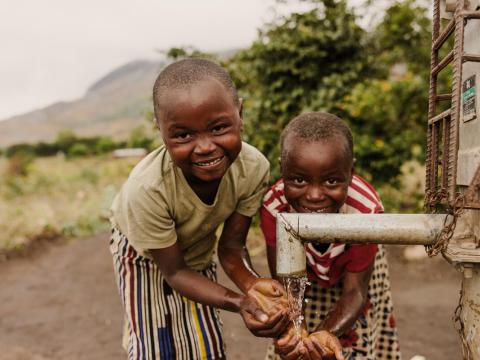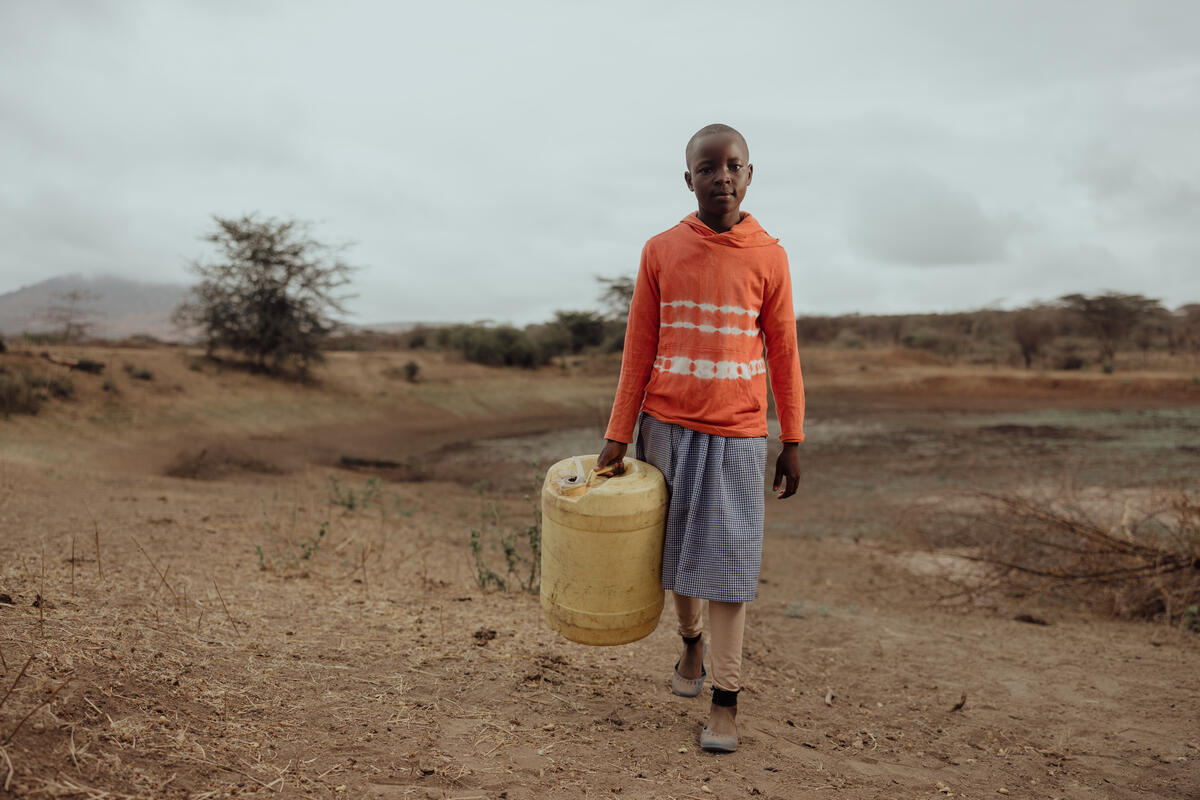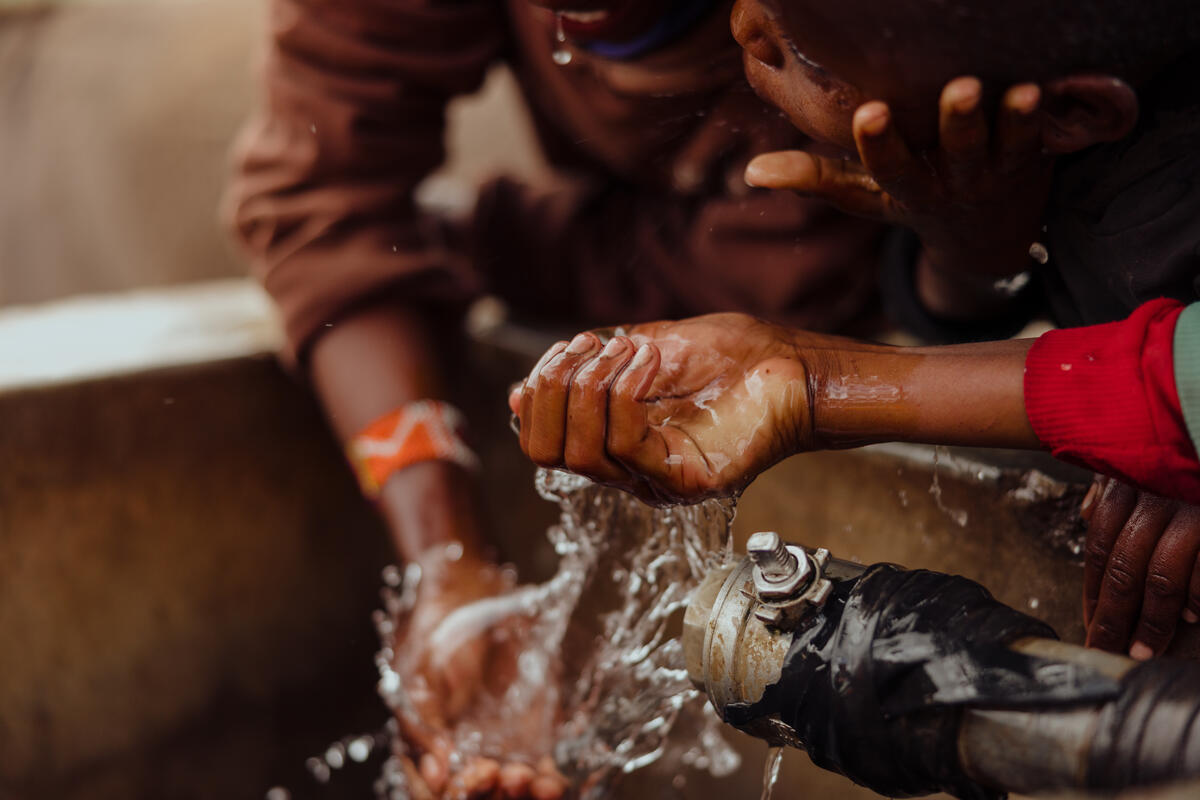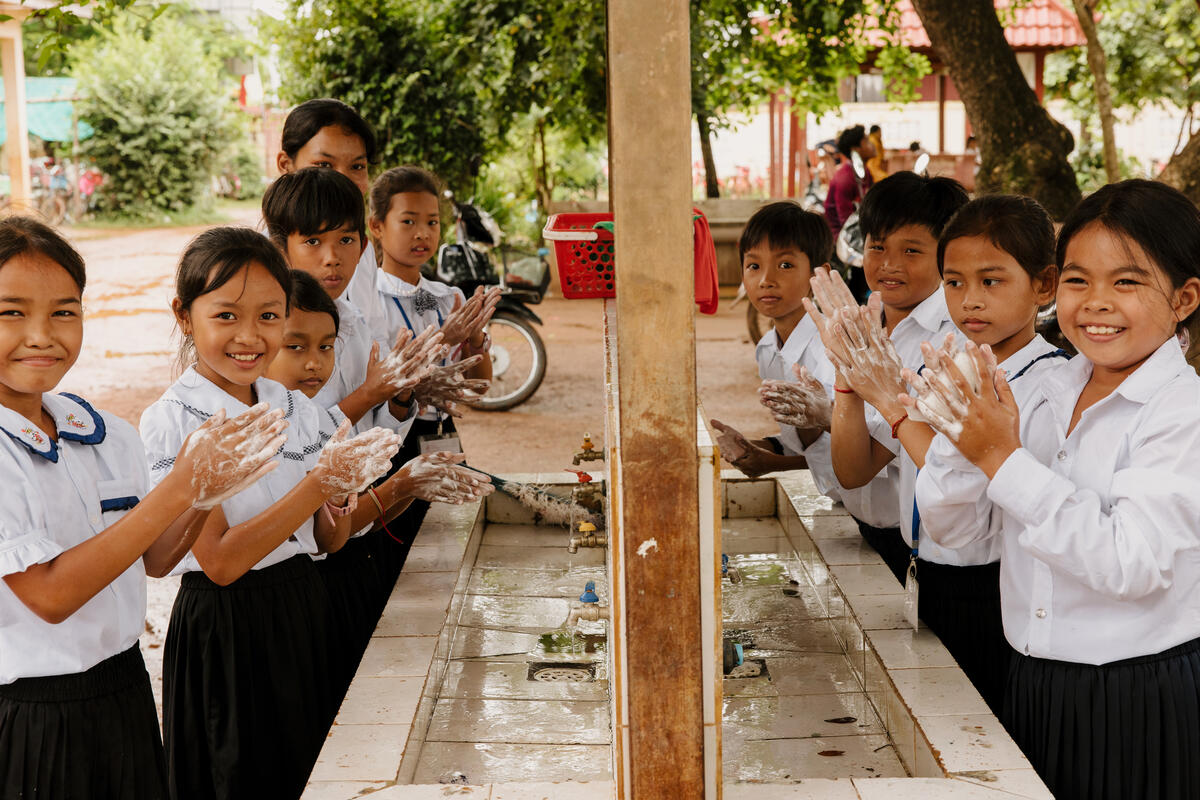Your 101 Guide to Diarrhoea + Development

Words I never thought I’d say: tell me about diarrhoea
Bodily functions aren’t usually considered polite topics of conversation, but diarrhoea is worth talking about. That’s because diarrhoea is the third leading cause of death for children under 5 worldwide. Every year, almost 500,000 children under 9 years old die of diarrhoeal disease; in the next hour, 56 children will have died from complications connected to diarrhoeal disease.
What’s making these kids sick?
It’s weird for most to imagine life without a flushing toilet to easily get rid of “toilet stuff” or where brushing your teeth could be life-threatening – and yet this is the daily reality for over 2 billion people around the world, who lack access to clean water. For one in every four people on Earth, water comes from dirty water holes or rivers that are shared by animals, and it’s not treated to get rid of the bacteria that fester in those conditions. This water is the culprit that causes most kids to get diarrhoea.

Dirty water and diarrhoea are gross but are they deadly?
It’s true that diarrhoea can usually be easily treated with medicine, electrolytes, or just by drinking plenty of water. But much of the world takes access to these basics for granted. Put diarrhoea aside for a minute - dirty water alone causes the death of a human being every 10 seconds. Bodies need clean water to support our organs and immune system.
Diarrhoea is our body’s big, brown flag telling us something is very wrong inside our intestines, where our body processes and absorbs nutrients from our diets. When we have it, digested food moves too quickly through our body, and we become undernourished, weak, and dehydrated. A simple sickness can suddenly become life-threatening, especially for people living in poverty with low levels of nutrition and weakened immune systems.
So it’s a big deal when kids get diarrhoea in the developing world.
Even for the children who can be treated for this illness, long-term effects of diarrhoea can include malnutrition, a compromised immune system, stunted growth, and developmental issues. For kids who don’t have reliable access to clean water, medical care and healthy food, it can be hard to bounce back – especially when they are exposed to diarrhoeal disease over and over again. The knock-on effects can be lifelong, and even intergenerational. Sick children can miss years of education and socialisation; chronic illness and long-term impairments from malnutrition affect an entire generation of people, preventing them from living life to the full and reaching their full income-earning potential.

Is diarrhoea the only problem dirty water causes?
Not having access to clean water affects a child’s every day in lots of ways.
- It’s hard to properly recover from illness like diarrhoea – and avoid relapses
- You can’t maintain good personal hygiene to fight off everyday infections or germs
- You can’t grow healthy crops to feed your family
- You are often dehydrated because when you have to carry all of your water home in containers, your supplies are limited
- You have less time to spend on studying or earning an income because you are busy collecting water every day – especially if you’re a woman or girl because they are usually responsible for that chore
- You face safety risks every time you have to collect water – and women and girls are most affected.
Water is such a basic thing – surely we are getting on top of this problem?
We know exactly what needs to happen to fix water problems, but it’s not always easy, especially in the most remote and fragile parts of the world. Water shortages and contamination are growing issues across the globe. Climate change and extreme weather events like drought deplete reserves and draw undrinkable water up from lower points, polluting the water table. Flooding washes away entire crops, destroying livelihoods and making water stores unfit for human consumption.
Water scarcity often leads to friction – and sometimes conflicts – among communities too. In the face of increasing extreme weather events, more conflicts are breaking out over transboundary water supplies, which has a devastating effect on a nation’s development and people’s ability to prosper.

I’m ready for some good news. Do you have any?
Yes! Every 10 seconds, World Vision provides a child with access to clean water. Every day, sponsors and donors help reach three more schools with clean water. In 2023 alone, 3.1 million people got access to clean water, thanks to your support. What you’re doing as a sponsor is life-altering.
But helping kids beat diarrhoea takes more than just taps and tanks. That’s why we also partner with communities to train local volunteers to care for and maintain their water infrastructure. We install toilets and other sanitation facilities in communities, schools and hospitals. We train children, parents, teachers and others in the community about good hygiene and how to stay healthy.
For example in Rwanda, we set up Community Hygiene Clubs so families could learn about the impacts of unclean water and the benefits of setting and maintaining a nearby latrine and water supply. Derrick, 15, says, “I used to have stomach upsets all the time because of poor sanitation but since we got our own latrine, this became history.”
In Eswatini’s Lubombo Region, poor sanitation and hygiene meant students and staff weren’t going to school. When the school’s village received access to safe water under World Vision Eswatini’s Water, Sanitation, and Hygiene (WASH) programme, enrolment grew from just over 300 students to over 450. More than 10,000 students in 17 schools across the area now have access to water through the programme.
And what happens next?
Right now, we’re bringing to life a plan to bring water, sanitation, and hygiene facilities to people in 41 countries. Working together with local communities and governments around the world, sponsors and other donors will provide 15 million people with safe water, 14 million people with improved sanitation, and 18 million with improved hygiene over a five-year period. Thank you!